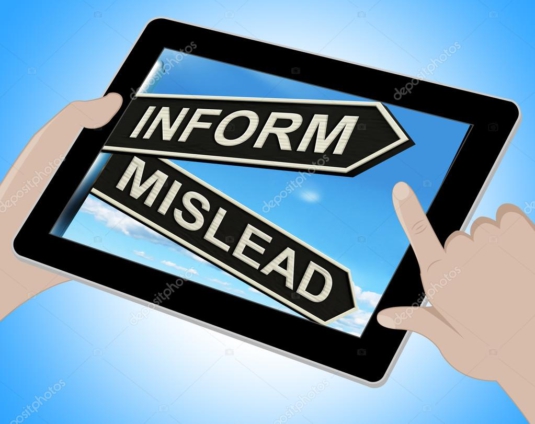The discussions on fake news have become a concern to many. Scholars have tried to give a working definition of what fake news is. Others like the UNESCO handbook for journalists have tried to establish the difference between fake news and misinformation, drawing on the fact that, misinformation is a form of fake news and hence, the need for a clear distinction to be drawn.
Concerns surrounding fake news have spread since the 2016 US presidential election. Many believe that “fake news” has become a powerful and sinister force in the online news media environment, with dire consequences for democracy (Glaser, 2017; Zengerle, 2016).
As a result, news organizations and technology companies have taken steps to stifle fake news production and dissemination (Owen, 2016). These efforts, and the discourse surrounding them, assume that fake news reaches a broad, susceptible audience, who do not compare these stories against those from other sources.
Fake News is defined as “fabricated information that mimics news media content in form but not in organizational process or intent.” Concerns about the harmful effects of fake news on democratic societies have yielded several ways to combat fake news. While some criticize producers and distributing platforms (e.g., social media sites), others address the urgent need for media literacy education, which can help audiences to develop the ability to better handle fake news.
Taken together, circumstances such as the outbreak of COVID-19 which according to WHO is a pandemic have contributed to a media environment where sensational headlines have become easier to find than they are to verify. As a result, two-in-three adults worldwide now believe fake news causes confusion about current events and issues, as well as basic facts.
In a media environment where news consumption has grown increasingly “incidental” and mediated by social media platforms (Fletcher and Nielsen, 2018), those with more availability will still likely be exposed to news from a wider variety of sources, while those with less availability will likely continue to consume news from the most popular sources.
With the widespread growth of not only digital journalism but also non-professional and unreliable information publishers, the boundaries between professional and non-professional news content have become increasingly difficult to distinguish.
Nowadays many different social actors, both within and beyond legacy news media, use digital technologies for the production and distribution of news. Emerging technological affordances have enabled audiences to do more with the media, and consequently the relationships between actors and audiences have changed. By providing every user with a potentially mass audience, social media platforms have broken traditional journalism’s monopoly over news production and distribution (Hermida, 2011; Tandoc and Vos, 2015).
But this also meant the spread of raw information without traditional vetting from journalists, spreading the onus of authentication to news audiences. At this stage of the COVID-19 pandemic, it is critical for individuals to be mindful of the information they consume. One element of misinformation is its ability to provide false connection of news headlines to main story, declaring resulting a state of panic and fear for readers who are not able to fully read beyond the headlines.
Media literacy is key as misinformation can take different forms. Let us all become a misinformation police and not a carrier of misinformation contagion.
Latest Stories
-
NDC supports Dampare’s ‘no guns at polling stations’ directive
15 seconds -
Police officer interdicted after video of assault goes viral
18 mins -
KNUST’s Prof. Reginald Annan named first African recipient of World Cancer Research Fund
19 mins -
George Twum-Barimah-Adu pledges inclusive cabinet with Minority and Majority leaders
1 hour -
Labourer jailed 5 years for inflicting cutlass wounds on businessman
1 hour -
Parliament urged to fast-track passage of Road Traffic Amendment Bill
1 hour -
Mr Daniel Kofi Asante aka Electrician
1 hour -
Minerals Commission, Solidaridad unveils forum to tackle child labour in mining sector
1 hour -
Election 2024: Engagement with security services productive – NDC
1 hour -
Retain NPP for the good of Ghana – Rebecca Akufo-Addo
1 hour -
‘Let’s work together to improve sanitation, promote health outcome’ – Sector Minister urges
1 hour -
Ellembelle MP cuts sod for six-unit classroom block at Nkroful Agric SHS
1 hour -
‘I’ll beat the hell out of you if you misbehave on December 7’ – Achiase Commanding Officer
1 hour -
AFPNC leads the charge on World Prematurity Day 2024
1 hour -
Court remands unemployed man over theft of ECG property
2 hours

